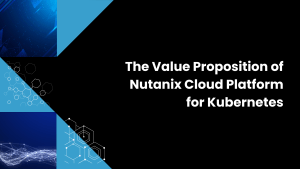Data is a precious business asset. In the emerging hybrid-cloud market, any solution provider that doesn’t enable strong end-to-end data protection is a nonstarter.
As Wikibon reviews the recent spate of industry announcements in hybrid cloud, we keep returning to data protection as table stakes. If a provider has failed to address it with robust solutions that span the diversity of its customers’ hybrid-cloud deployment scenarios, Wikibon can’t help but tag it as more of an also-ran than a leader.
Dell Technologies covers cloud data protection
Data protection tends to get more challenging as hybrid clouds grow more complex. This week at its big user conference in Las Vegas, Dell Technologies significantly deepened its value proposition for enterprises that are deploying complex hybrid clouds. It has launched optimized hardware, software and services that span core to edge and encompass subscription-based cloud services, turnkey engineered systems and fully managed appliances.
Wikibon considers Dell Technologies’ portfolio of hardware, software and services among the best in the industry for making hybrid clouds easier to manage. In addition to its own software-as-a-service environment and integration with leading public clouds, such as Amazon Web Services and Microsoft Azure, Dell Technologies’ hybrid-cloud offerings now span on-premises environments composed of its own mature hyperconverged infrastructure, virtualization and storage platforms.
The company’s latest announcements enhance its customers’ ability both to distribute and also to monitor, manage and safeguard data and workloads across hybrid clouds. Where end-to-end data protection is concerned, Dell Technologies has hit the nail on the head regarding what enterprises need in complex hybrid clouds.
In this regard, Dell Technologies announced several new or enhanced data-protection offerings that position its solutions well for growing adoption in the hybrid cloud market:
- Hybrid-cloud disaster recovery as a service: Dell Technologies’ new VMware Cloud on Dell EMC solution incorporates built-in enterprise-grade data services for hybrid cloud environments, while offering the option of adding on backup and disaster capabilities.
- SaaS-enabled, data management software platform/appliance for hybrid-cloud data protection: The newly announced Dell EMC PowerProtect data management solution enables comprehensive software-defined data protection, replication, and reuse across hybrid clouds. To address the complexity of hybrid cloud deployment, Dell Technologies had the good sense to offer Dell EMC PowerProtect — which is due for general availability this July — as either a software-only solution or as a multi-dimensional integrated appliance. PowerProtect enables unified data backup and recovery orchestration. It integrates with VMware’s vRealize solution for automation of policy-based backup and recovery. The PowerProtect X400 appliance provides the flexibility to scale-up with grow-in-place capacity expansion and scale-out compute power and capacity. It is also the first Dell EMC data management solution to leverage machine learning for intelligent load balancing, thereby ensuring that protected data is placed in the most efficient and cost-effective location possible.
- Cloud storage with built-in data protection: Dell Technologies has expanded its portfolio of cloud-enabled infrastructure solutions with new Dell EMC Cloud Storage Services. This extends customers’ data centers to the cloud, providing Dell EMC storage — which is directly connected to the public cloud compute – as a service. This fully managed SaaS offering delivers a high-speed, low-latency connection from a public cloud directly to Dell EMC Unity, PowerMax and Isilon storage platforms deployed in customer data centers. It also enables VMware customers to leverage an automated disaster-recovery-as-a-service solution in VMware Cloud on AWS for seamless, enterprise-grade, pay-as-you-go DR in the cloud.
- Data protection appliance for remote and branch offices: Dell Technologies released a data protection appliance that it designed for small and medium-sized businesses The new Dell EMC Integrated Data Protection Appliance DP4400 is a lower capacity version of an existing appliance that is suited for smaller organizations and remote offices but allows the ability to grow in place up to 96 terabytes with the purchase of license keys and an upgrade kit.
Hybrid-cloud solution providers range widely in data-protection support
With respect to data protection, Dell Technologies seems to be placing greater strategic importance on this capability than some of its closest rivals in the hybrid cloud arena, though none is ignoring this critical enterprise requirement.
For example, Google Cloud didn’t directly address data protection in its recent launch of Anthos. Instead, Google seems to be relying on partners,, including Cisco, Dell EMC, VMware, HPE, Intel, and Lenovo, to include data protection features in their future hyperconverged infrastructure offerings into which Anthos will be embedded.
Going forward, Wikibon won’t consider Google’s hybrid cloud offering a truly enterprise-grade until there are a sufficient number of commercial solutions — partner-provided and/or its own — that address data protection features and cloud-to-edge deployment models and that are functionally equivalent to those in Dell Technology’s new offering.
Where data protection is concerned, Cisco Systems Inc. certainly has mature commercial solutions, though it didn’t incorporate them into its most recent round of enhancements to its multicloud solution portfolio. Wikibon’s recommendation for Cisco is to integrate strong data protection features into future enhancements to its CloudCenter Suite.
However, IBM Corp. remains the industry pacesetter in data protection for hybrid and multicloud environments. Its Spectrum Protect offering is a leader in this space and its recently announced IBM Services for Multicloud Management solution has strong data backup and recovery features. Recently, IBM deepened its hybrid-cloud data protection value when it launched IBM Cloud Secure Virtualization, which enables data administrators to define and create location-based data boundaries to ensure that workloads only run on trusted servers and in specific data centers.
Wikibon recommends that IBM continues to deepen the machine learning features in its data protection platforms to further automate intelligent data platforms across complex hybrid and multicloud environments.
Recommendations for users
Wikibon recommends that enterprise IT put data protection at the forefront of their hybrid and multicloud strategies.
As you build out your hybrid-cloud data-protection strategy, look for a vendor whose solution deployment model — in other words, software-only versus fully managed appliance — aligns and integrates with your investments at the platform level. Make sure that data protection is fully integrated functionally into the control plane of your preferred hybrid and multicloud platform. And pay special attention to those data protection solutions that leverage machine learning to automate data backup and recovery across complex distributed cloud environments.
Guests interviewed on theCUBE at Dell Technologies World
Guests being interviewed on theCUBE include Michael Dell; Doug Schmitt, president, Dell Technologies Services at Dell EMC; Sanjay Poonen, chief operating officer of VMware; Jeff Clarke; Joyce Mullen; Pat Gelsinger; Ty Schmitt, vice president and fellow, Extreme Scale infrastructure, at Dell EMC; Ashley Gorakhpurwalla, president and general manager of server and infrastructure systems at Dell EMC; and Jeff Boudreau, president of Dell EMC’s Storage Division.
Also being interviewed are Howard Elias, president of Services and Digital at Dell; Tom Sweet, chief financial officer at Dell; Andy Anglin, director of cloud technologies at Halliburton Landmark; Tom Burns, senior vice president and general manager of Dell EMC networking and solutions; Chris McNabb, CEO of Dell Boomi; and Cliff Madru, vice president of cloud solution architecture and engineering at Iron Mountain.
How to watch theCUBE interviews
Data protection and related hybrid and multicloud topics are a key focus this week on theCUBE at Dell Technology World. We offer various ways to watch all of theCUBE interviews that will be taking place at Dell Technologies World, including theCUBE’s dedicated website and YouTube. You can also get all the coverage from this year’s event on SiliconANGLE.
TheCUBE’s dedicated website and Ustream
All of theCUBE’s exclusive interviews from Dell Technologies World will be available on theCUBE’s dedicated website.
You can also watch all the interviews on the dedicated Ustream channel.
Watch on the SiliconANGLE YouTube channel
All of theCUBE interviews from Dell Technologies World, which runs April 29-May 1, will also be loaded onto SiliconANGLE’s dedicated YouTube channel.
TheCUBE Insights podcast
SiliconANGLE also has podcasts available of archived interview sessions, available on iTunes, Stitcher and Spotify to listen to while on the go.
Livestream of Dell Technologies World
If you are unable to attend Dell Technologies World in Las Vegas, you can watch key sessions, event activities and on-demand content here.
(* Disclosure: Some segments on SiliconANGLE Media’s theCUBE are sponsored. Sponsors have no editorial control over content on theCUBE or SiliconANGLE.)


